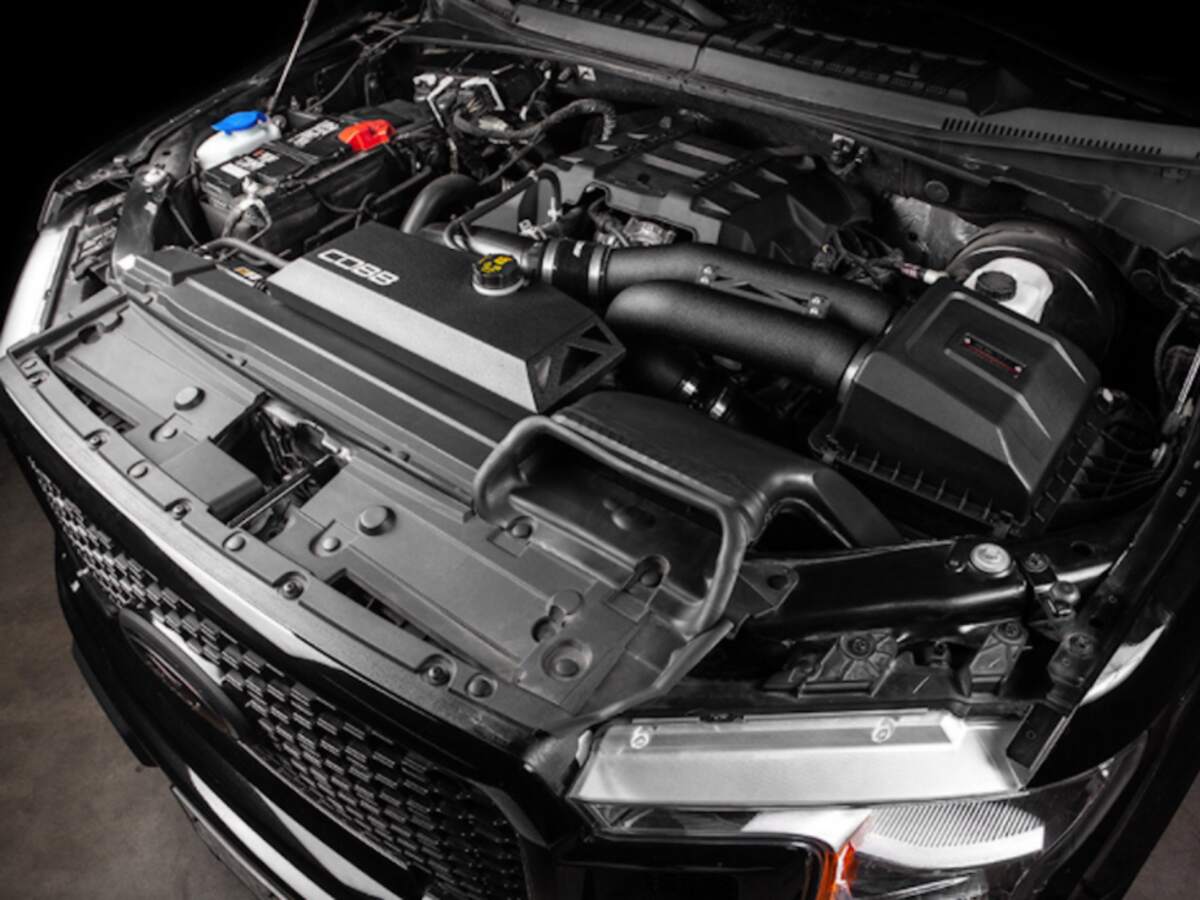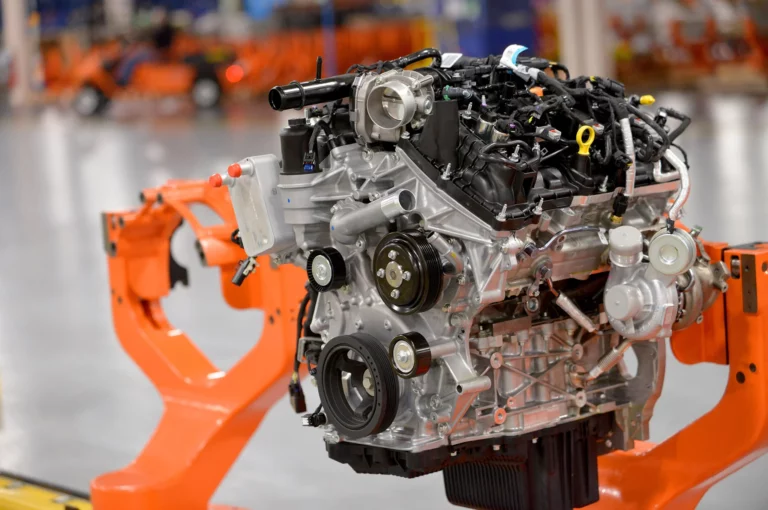Introduction
Rev up your engines and get ready for a wild ride as we delve into the world of the 2013 Ford F150 EcoBoost! This powerhouse of a truck has been turning heads since its debut, but how reliable is it really? If you’re considering getting behind the wheel of this beastly beauty.
You’ll want to know all about the potential 2013 Ford F150 Ecoboost Problems and longevity of its engine. So buckle up, because we’re about to take a deep dive into the world of the 2013 Ford F150 EcoBoost and uncover whether it’s truly built to go the distance.
What Engine Size Is In 2013 Ford F150 EcoBoost?
The 2013 Ford F150 EcoBoost features a powerful and efficient engine that has made quite an impression in the automotive industry. So, what engine size does this truck boast? Well, it comes equipped with a robust 3.5-liter V6 EcoBoost engine.
This turbocharged powerhouse delivers outstanding performance with its blend of direct fuel injection and twin-turbocharging technology. With this setup, the engine generates an impressive amount of horsepower and torque, making it ideal for towing heavy loads or conquering tough terrains.
What sets the 3.5 EcoBoost apart is its ability to provide V8-like power while maintaining better fuel efficiency than larger engines. This means you get the best of both worlds – ample power when you need it most without compromising on gas mileage.
In terms of sheer capability, the 3.5 EcoBoost is truly remarkable. It offers exceptional acceleration and smooth power delivery throughout the RPM range. Whether you’re hauling heavy cargo or simply enjoying a spirited drive on open roads, this engine won’t disappoint.
Is 2013 Ford EcoBoost A Good Engine?
One thing that can’t be denied is the power and performance this engine delivers. With its turbocharged design, the EcoBoost provides ample horsepower and torque for towing and hauling needs. It’s definitely not lacking in that department.
However, some drivers have experienced issues with fuel economy. While the EcoBoost was marketed as an efficient option, some owners have found that they don’t achieve the promised mileage numbers. This can be frustrating, especially if you were banking on saving money at the pump.
Another concern is reliability. Some early models had problems with misfires or rough idle, which could indicate larger issues down the line. Additionally, there have been reports of turbo failure or oil leaks in certain vehicles.
That being said, it’s important to note that not all owners experience these 2013 Ford F150 Ecoboost Problems. Many are satisfied with their EcoBoost engines and find them reliable for daily use.
What Problems Does 3.5 EcoBoost Have?
When it comes to the 3.5 EcoBoost engine in the 2013 Ford F150, there have been a few reported problems. One common issue is with the timing chain. Some owners have experienced issues with stretched or broken timing chains, which can cause significant damage to the engine if not addressed promptly.
Another problem that has been reported is related to the turbochargers. There have been instances of turbo failure, where the turbos become clogged or stop working altogether. This can result in a loss of power and decreased fuel efficiency.
Additionally, some owners have complained about oil leaks from various components of the engine, such as valve covers and oil pans. These leaks can lead to low oil levels and potential engine damage if not fixed.
While these 2013 Ford F150 Ecoboost Problems may sound alarming, it’s important to note that they don’t affect every vehicle equipped with the 3.5 EcoBoost engine. Many owners have had no issues at all and find this engine reliable for their needs.
How Reliable Is 2013 F150 EcoBoost?
One common problem that some drivers have experienced with the 3.5 EcoBoost engine is a loss of power or misfires. This can be attributed to various factors such as carbon buildup in the intake valves or faulty ignition coils. However, it’s important to note that not all trucks will encounter these 2013 Ford F150 Ecoboost Problems.
Another issue that has been reported is related to the timing chain tensioners. Over time, these tensioners can wear out and cause a rattling noise in the engine compartment. While this may be concerning for some owners, it doesn’t necessarily mean that there is immediate danger or catastrophic failure imminent.
Despite these potential 2013 Ford F150 Ecoboost Problems, many owners have found their 2013 F150 EcoBoost engines to be quite reliable. With proper maintenance and care, this engine can last for several hundred thousand miles without major problems.
To improve the reliability of your 3.5 EcoBoost engine, regular oil changes are crucial. Using high-quality synthetic oil and following Ford’s recommended service intervals will help prevent sludge buildup and keep your engine running smoothly.
How Long Can This Engine Last?

With proper maintenance and care, this engine can easily reach over 200,000 miles or more before needing any major repairs. Many owners have reported their EcoBoost engines lasting well beyond this mileage mark without any issues.
One factor contributing to the longevity of this engine is its direct fuel injection technology, which helps improve performance and efficiency while reducing wear and tear on internal components. Additionally, Ford has made significant advancements in engineering and design for improved durability.
Of course, it’s important to note that individual experiences may vary depending on factors such as driving habits and maintenance practices. Regular oil changes, timely servicing of filters, and using high-quality fuel are crucial for maximizing the lifespan of any engine.
In conclusion, when properly cared for, the 2013 Ford F150 EcoBoost engine can provide many years of reliable service without any major 2013 Ford F150 Ecoboost Problems arising. So if you’re considering purchasing a used F150 with an Ecoboost engine from this model year, rest assured knowing that you’ll likely have plenty of trouble-free miles ahead!
How To Improve 3.5 Ecoboost Reliability

If you’re a proud owner of the 2013 Ford F150 EcoBoost, you may be wondering how to improve its reliability and ensure it continues to run smoothly. While every vehicle will have its own set of potential issues, there are steps you can take to enhance the longevity and dependability of your 3.5 EcoBoost engine.
Regular maintenance is key. Make sure to follow the manufacturer’s recommended service schedule for oil changes, filter replacements, and overall inspections. This will help identify any potential 2013 Ford F150 Ecoboost Problems before they become major issues.
Consider upgrading certain components that are known to fail or wear out over time. For example, many owners have found success by installing aftermarket intercoolers or catch cans to improve air intake and reduce carbon buildup.
Consider investing in high-quality fuel and using additives that promote cleaner combustion within the engine cylinders. This can help prevent carbon deposits from forming and potentially causing performance issues down the line.
FAQs – 2013 Ford F150 Ecoboost Problems
Q1: Are there any common issues with the 2013 Ford F150 EcoBoost?
A: While the 2013 Ford F150 EcoBoost is generally a reliable engine, there are a few common issues that owners have reported. One of the main concerns is related to the timing chain tensioners, which can lead to noise and potential engine damage if not addressed promptly.
Q2: How often should I change the oil in my 2013 F150 EcoBoost?
A: It is recommended to follow Ford’s guidelines for oil change intervals, which typically range from every 5,000 to 7,500 miles depending on driving conditions and usage. Regular oil changes are essential for maintaining optimal engine performance and longevity.
Q3: Can I tow with my 2013 F150 EcoBoost?
A: Absolutely! The 2013 Ford F150 EcoBoost has impressive towing capabilities and can handle most towing needs with ease. However, it’s important to ensure you’re following proper towing procedures and not exceeding your truck’s maximum towing capacity.
Q4: Will using aftermarket modifications affect my warranty coverage?
A: Using aftermarket modifications may potentially void certain aspects of your warranty coverage if they directly contribute to any issues that arise with your vehicle. It’s always best to consult your owner’s manual or contact a Ford dealership for specific information regarding aftermarket modifications and their impact on warranty coverage.
Closing Thoughts
When it comes to the 2013 Ford F150 EcoBoost, there is no denying that it has had its fair share of 2013 Ford F150 Ecoboost Problems. From issues with the timing chain to concerns about fuel efficiency, some owners have experienced frustrations with this engine. However, it’s important to remember that every vehicle can have its flaws.
If you’re considering purchasing a used 2013 Ford F150 EcoBoost or already own one, there are steps you can take to improve reliability and mitigate potential 2013 Ford F150 Ecoboost Problems. Regularly servicing your vehicle at recommended intervals, addressing any warning signs promptly, and using high-quality fuel and oil are all essential factors in maximizing reliability.
So if you’re eyeing up a 2013 Ford F150 EcoBoost but concerned about its reputation for problems—don’t let those worries overshadow all of its positive attributes! With proper care and attention paid towards maintenance, this engine could provide reliable performance for years to come.
